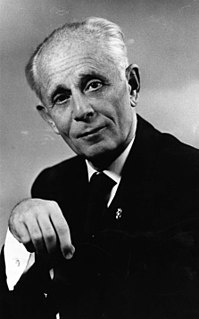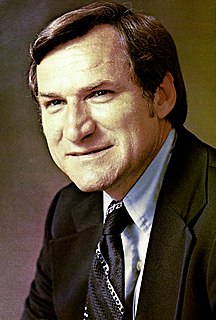A Quote by Joe Lonsdale
Great leaders inspire incredible loyalty in their followers and subordinates.
Quote Topics
Related Quotes
Not many of us will be leaders; and even those who are leaders must also be followers much of the time. This is the crucial role. Followers judge leaders. Only if the leaders pass that test do they have any impact. The potential followers, if their judgment is poor, have judged themselves. If the leader takes his or her followers to the goal, to great achievements, it is because the followers were capable of that kind of response.
What makes a good follower? The single most important characteristic may well be a willingness to tell the truth. In a world of growing complexity leaders are increasingly dependent on their subordinates for good information, whether the leaders want to hear it or not. Followers who tell the truth and leaders who listen to it are an unbeatable combination.
Trust is perhaps the most critical single building block underlying effectiveness. Without trust leaders do not have followers. Without trust, leaders are impotent despite great rhetoric or splendid ideas. Trust rests on the belief among followers that the leader is transparent: What you see is what there is. Trust means followers believe there is no duplicity; no manipulation just to satisfy the leader's ego. Very simply: The effective leader is transparent; that's why that person is trusted.
There are only three kinds of people. LEADERS. Those who take charge, build, inspire, and create. FOLLOWERS. Those who support leaders and work to achieve mutually beneficial goals.... [and] DESTROYERS. Destroyers cannot find it within themselves to follow anyone, their hatred and insecurity is too pure to see strength in any OTHER being. The utterly lack the ability to inspire or create, so they do the only thing left to them -- they tear down all they come in contact with.
All authority of any kind, especially in the field of thought and understanding, is the most destructive, evil thing. Leaders destroy the followers and followers destroy the leaders. You have to be your own teacher and your own disciple. You have to question everything that man has accepted as valuable, as necessary.
Why do leaders fail? Isolation and inability to learn. They are afraid to express doubt, admit vulnerability or seek advice from subordinates. Leaders must actively work to seek feedback and a reality check. They must be open to asking questions and framing issues. As the world becomes more complex and global, the risk of isolation becomes greater. The need for leaders to be open to learning becomes greater. Great leaders will need to ask the right questions and balance inquiry with advocacy.






























